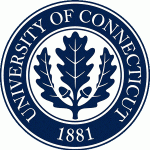 Professor Jorge Agüero’s paper “COVID-19 and The Rise of Intimate Partner Violence” is now a Top 10 most cited paper in World Development, considering all publications since 2018.
Professor Jorge Agüero’s paper “COVID-19 and The Rise of Intimate Partner Violence” is now a Top 10 most cited paper in World Development, considering all publications since 2018.
The paper may be found online at: https://doi.org/10.1016/j.worlddev.2020.105217
The abstract is below:
Title: COVID-19 and The Rise of Intimate Partner Violence
Abstract: Stay-at-home policies have been implemented worldwide to reduce the spread of the SARS-CoV-2 virus. However, there is a growing concern that such policies could increase violence against women. We find evidence in support of this critical concern. We focus on Peru, a country that imposed a strict nationwide lockdown starting in mid-March and where nearly 60% of women already experienced violence before COVID-19. Using administrative data on phone calls to the helpline for domestic violence (Línea 100), we find that the incidence rate of the calls increased by 48 percent between April and July 2020, with effects increasing over time. The rise in calls is found across all states and it is not driven by baseline characteristics, including previous prevalence of violence against women. These findings create the need to identify policies to mitigate the negative impact of stay-at-home orders on women’s safety.
 Congratulations to Professor
Congratulations to Professor  The Center for Career Development features Professor Natalia Smirnova with their Career Champion Spotlight:
The Center for Career Development features Professor Natalia Smirnova with their Career Champion Spotlight:
 Griffin O’Neill, a senior with a double major in Economics and Geography, presented a poster visualizing data on the topic of National Football League (NFL) Attendance and Anthem Protests in 2016.
Griffin O’Neill, a senior with a double major in Economics and Geography, presented a poster visualizing data on the topic of National Football League (NFL) Attendance and Anthem Protests in 2016.
 This year, marking the 25th anniversary of the
This year, marking the 25th anniversary of the  Photo: Dr. Smirnova (left) and Matthew Gilshteyn at the Frontiers in Undergraduate Research event in Stamford, April 12, 2022.
Photo: Dr. Smirnova (left) and Matthew Gilshteyn at the Frontiers in Undergraduate Research event in Stamford, April 12, 2022. On April 7, 2022, Dr. Smirnova presented at the UConn
On April 7, 2022, Dr. Smirnova presented at the UConn